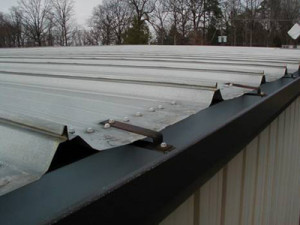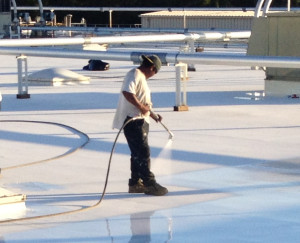WILL YOUR ROOF LAST LONG ENOUGH TO JUSTIFY ITS COST?
Many building owners purchase a new roofing system for the building thinking the money they save on energy costs or on low maintenance will allow them to break even on the purchase price. Certain roofing systems do pay themselves off by saving you money on energy and maintenance expenses, but many roofing systems don’t last long enough to pay themselves off. Even a roofing system that is installed correctly may not survive its full expected life due to many outside factors that impact roof life. If you want a roofing system that will save you enough money that it becomes “profitable”, continue reading about the most common roofing system lifespans.
Roofing System Lifespans are Based on Averages
It is important to remember before we start looking at this too closely that these numbers are all based on averages. None of these numbers are a guarantee that your roofing system lifespan will fall in the range given. Your system could last significantly longer than the range given, or significantly shorter. Don’t assume that just because these numbers are here and say one thing that your roof will last exactly this long. With that being said, these numbers are based on years of data from many different environments and have been found to be reliable over the years.
What Roofing System Has the Longest Lifespan?
The most recent authoritative study on roofing system lifespans gave the following useful lifespans for the most common roofing systems.

Metal
According to the study, metal is expected to last somewhere between 30-45 years after installation. This lifespan can only be expected if the roof is maintained over the years. This could include periodic painting to avoid rust, replacement of defective or damaged panels, and re-fastening the roof if any fasteners become dislodged during roof movement. If the roof is properly maintained and inspected, it is not unreasonable to expect your metal roof to last 40 years or longer. The lifespan of a metal roof can also vary depending on the type of metal chosen, with many different metals available.
Spray Foam Roofing
Sprayed Polyurethane Foam, also referred to as SPF, probably has the longest roofing system lifespan in the study. We say probably because this system is very young and many of the first SPF roofs that were installed in the late 1960’s and early 1970’s are still in service. These roofs have endured for around 50 years and show no signs of stopping, but no average has been determined because the system is so young. Despite no authoritative answer on the life of the system, there are many SPF roofing systems that, when coated and maintained properly, have lasted 50+ years, giving SPF the longest roofing system lifespan of all common roofing materials.
Concrete
Concrete is a much more durable roofing material with a life expectancy of 35-50 years. This range is 5 years longer than metal, but concrete is reliable right up to the end of its life. The maintenance required to allow your concrete roof to last its full expected life is much less than that required for a metal roof or most other systems for that matter. There are some maintenance activities that must be done, there is no roofing system that doesn’t require maintenance, but concrete is one of the easier ones.

Spray-Applied Coatings
When we talk about spray-applied coatings, we’re talking about silicone coatings. These are the coatings that we manufacture and they are not a standalone system. They are designed to be applied to an existing roofing system and extend that system’s life. As was the case with SPF roofs, spray-applied coatings are still relatively young roofing systems and don’t have the definitive data that other roofing systems do. However, these systems can last up to 20 years depending on the application thickness, and some systems are guaranteed up to 50 years. At the end of their lives they can be recoated with less material than originally applied and be renewed for another 10-20 years. It is currently unknown how long this recoating process can go on before failure, because no one has reached that point yet.
Built-Up Roof
We have written about built-up roofs before on our blog, and their lifespan is always a concern. A built-up roofing system lifespan is the shortest of all materials in the study at 10-15 years. Even with proper maintenance and inspections performed, this material is only expected to last a decade and a half at best.
Modified Bitumen
While Built-up roofs have the shortest roofing system lifespan of any material in the study, modified bitumen is right behind lasting 12-20 years on average, just slightly better than the poorest performer. This is a system that was quite popular several years ago but has fallen from stardom for many reasons, not the least of which is its poor lifespan.
EPDM
One of the longer roofing system lifespans in the study is that of EPDM (rubber) roofs. They can be expected to last 25-30 years. This system is growing quickly in popularity in the US thanks in part to its longer-than-normal lifespan. If you’re looking for a long lasting roofing system with a reasonable price tag, EPDM is a good choice.
Conclusion
There are many roofing systems out there, each with different strengths and weaknesses that give them different expected lives. As always, we recommend you research further before making your roofing purchase.
